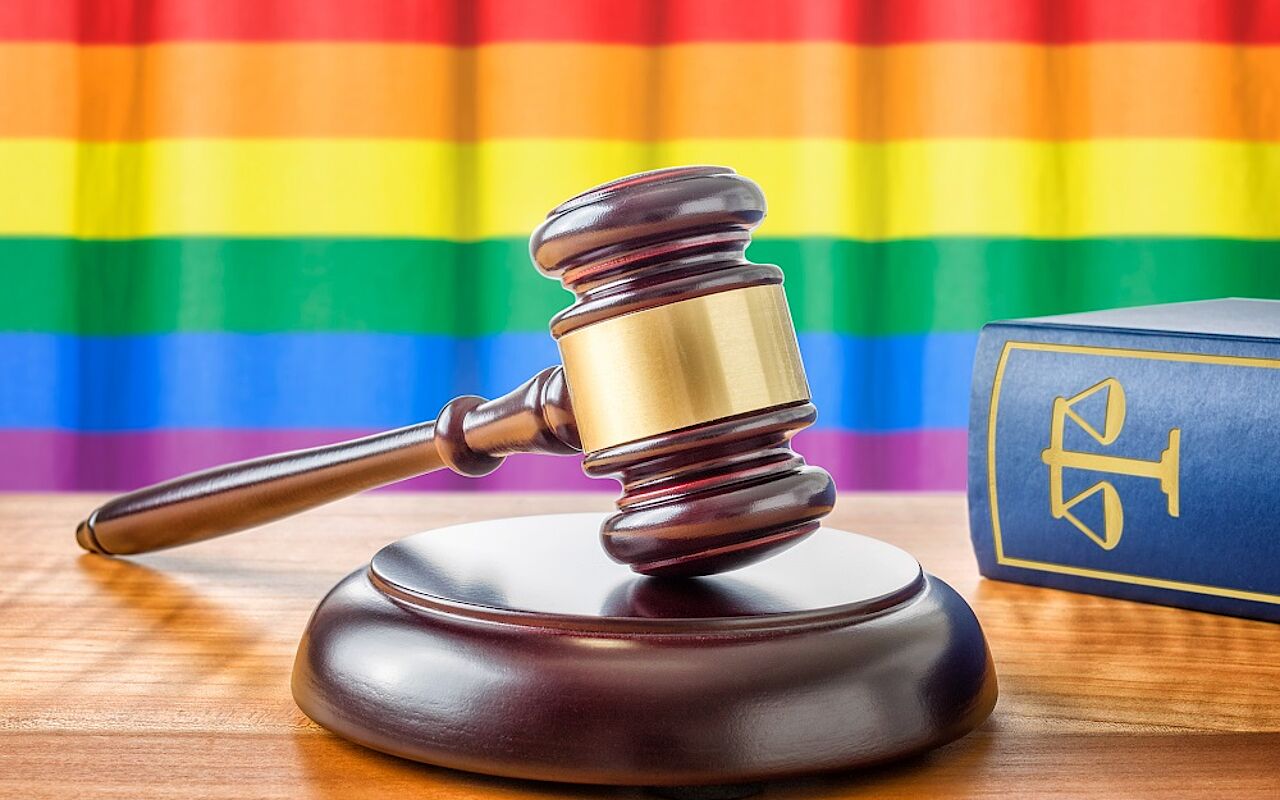by Kyra Sposny, Intern at the Atlantic Academy
As June 28 marked the 50th anniversary of the Stonewall riots of 1969, this year’s Pride Month celebrations were special for the American LGBTQ+1 community and its supporters. Although President Donald Trump acknowledged Pride Month on Twitter, reasons exist to be skeptical of his support for the community because of numerous developments regarding LGBTQ+ rights.
Right after Donald Trump’s inauguration on January 20th, 2017, any mention of the LGBTQ+ community disappeared from several government websites including that of the White House. Over the course of his presidency, Trump has appointed and nominated several openly anti-LGBTQ+ officials. Furthermore, the Trump administration and its departments have rolled back protections and enabled legal discrimination against LGBTQ+ individuals in different spaces. On October 6th, 2017, for example, the Department of Health and Human Services rescinded the Affordable Care Act’s birth control benefit on the basis of “religious exemptions” (GLAAD), making it possible to deny health care to women, transgender men and non-binary people who rely on this benefit. On the same day, the Department of Justice issued regulations allowing legal discrimination against LGBTQ+ employees by certain employers, when it is based on religious beliefs. Donald Trump has also implemented anti-transgender legislation, banning transgender individuals from serving in the armed forces and seeking to deny them health care protections under the Affordable Care Act.
Supreme Court
Most recently, the Trump Administration has asked the Supreme Court to exclude LGBTQ+ Americans when it comes to workplace protections: On August 16th, the Trump Administration filed a brief, requesting the highest court to rule against workplace protections for transgender people. On August 23rd, an amicus brief filed by the Solicitor General of the Department of Justice (DOJ), Noel Francisco, demanded the protections to exclude all LGBTQ+ Americans. The employment protections in question are enforced by the Civil Rights Act of 1964: Title VII forbids workplace discrimination based on sex, race, color, religion and national origin. According to the DOJ, the term “sex” does not include sexual orientation and gender identity but only refers to whether people are “biologically male or female”.This definition moreover excludes transgender and intersex people. The briefs also relate to several cases that will be heard by the Supreme Court on October 8th: Both Gerald Bostock (Bostock v. Clayton County, Georgia) and Donald Zarda (Zarda v. Altitude Express, Inc.) claimed they were fired from their jobs for being gay. In a third case (R.G. & G.R. Harris Funeral Homes Inc. v. Equal Employment Opportunity Commission), Aimee Stephens claims to have been fired for being transgender and having transitioned. Along with the cases, the Supreme Court will also consider the question whether Title VII includes sexual orientation and gender identity. A decision in favor of the LGBTQ+ employees might therefore lead to an extension of Title VII. James Esseks, director of the American Civil Liberties Union (ACLU) LGBT & HIV Project claimed that a ruling against the employees would shock America and “relegate LGBTQ people around the country to a second-class citizen status.”.
Equality Act and Taylor Swift
While the Supreme Court hearings are already in October, a final decision or vote on the Equality Act is not yet in sight. The Equality Act was passed by the House of Representatives on May 17th 2019. It extends protections for LGBTQ+ people in areas like housing, the workplace, public accommodations or education, and forbids discrimination based on sexual orientation and gender identity. The bill defines sexual orientation as “homosexuality, heterosexuality, or bisexuality”, and gender identity as “gender-related identity, appearance, mannerisms, or other gender-related characteristics of an individual, regardless of the individual’s designated sex at birth” (H.R.5-Equality Act). The Equality Act would be a federal law; similar protections are currently in force in only 22 states and vary in extent. Although or rather because the Democratic-controlled House of Representatives passed the bill, Majority Leader Mitch McConnell does not allow a vote on it in the Republican-controlled Senate. Republicans tend to explain their opposition to the Equality Act by arguing that it would diminish their religious rights, preventing them from openly voicing their views on sexuality and gender. They even proposed a “compromise bill”, essentially leaving room for discrimination on the basis of religious exemptions. LGBTQ+ advocates, on the other hand, have wanted to prohibit discrimination based on sexual orientation and gender identity for years, saying that discrimination is rooted in sex-based expectations of how someone of a certain sex is supposed to behave or look like.
As the Senate has not reacted yet, supporters of the Equality Act are getting frustrated; one of them is international pop star Taylor Swift. In June, she published an open letter in support of the Equality Act and started a petition, which calls for it to become a law. Taylor Swift has recently become known for being a supporter of the LGBTQ+ community. This is also visible in the music video for her latest single “You Need to Calm Down”, which celebrates the LGBTQ+ community and features many LGBTQ+ celebrities such as Ellen DeGeneres, RuPaul and Adam Lambert. As the song was awarded “Video of the Year” at the Video Music Awards on August 26th, 2019, Taylor Swift mentioned the Equality Act in her acceptance speech: She said that the bill “basically just says we all deserve equal rights under the law” and demanded a response to her petition, which by then had already surpassed 500,000 signatures.The response was muted from the White House. Not surprisingly, the speech also garnered a fair amount of backlash.
A contradiction?
And while the Trump administration has launched a campaign in an effort to decriminalize homosexuality overseas, the State Department has simultaneously rejected the request by U.S. embassies overseas to fly the Pride flag on the official flagpole during Pride Month in June 2019. Diplomats received instructions that they can fly the flag in other places inside or outside the embassies, yet the requests to fly it on the flagpole were denied. As NCB News reported: "The denial to the U.S. Embassy in Berlin is particularly jarring because the ambassador to Germany, Richard Grenell, is spearheading an administration push to end the criminalization of homosexuality in roughly 70 countries that still outlaw it, as NBC News first reported in February. Grenell, the most senior openly gay person in Trump's administration, has secured support for that campaign from both Trump and Vice President Mike Pence." At the end, Ambassador Grenell found a solution: Two flagpoles.
Overall, LGBTQ+ rights are a factor in American politics, sparking discussions like the ones surrounding the Equality Act and demanding decisions, like the one the Supreme Court has to make in October. The subject of equality and LGBTQ+ rights could even be an important factor in the presidential election: Every Democratic candidate demands the passage of the Equality Act and some candidates such as Corey Booker and Elizabeth Warren have signed Taylor Swift’s petition. It will be interesting to see which decisions will be made in the future and how they will affect the lives of LGBTQ+ Americans.
1. This essay uses the term LGBTQ+ because it is the most inclusive.









